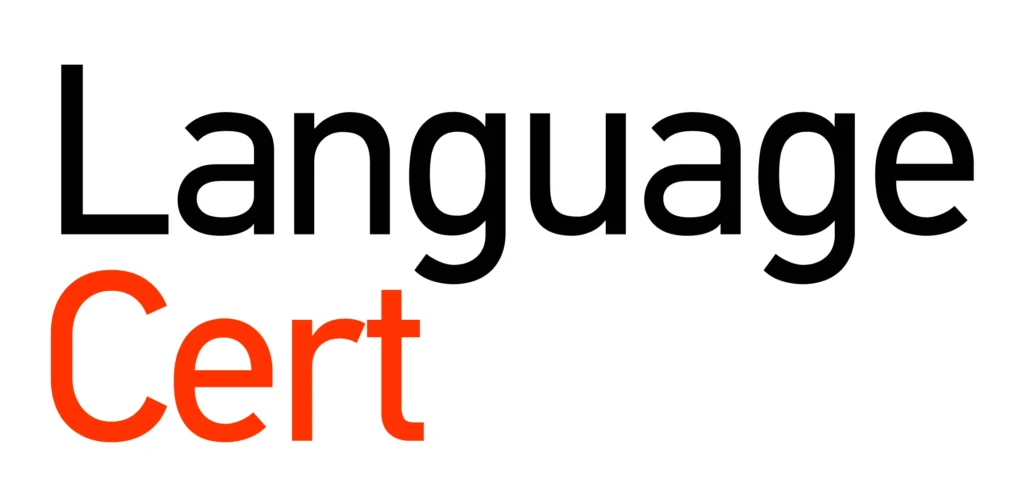- info@nsaimmigration.com
- 10:30 AM To 6:30 PM | Sunday Off

Why LanguageCert is Better Than IELTS: A Comprehensive Comparison
When it comes to proving your English language proficiency for immigration, education, or professional purposes, two of the most popular tests that come up are IELTS (International English Language Testing System) and LanguageCert. Both tests are widely recognized by universities, employers, and immigration authorities. However, many individuals are increasingly choosing LanguageCert over IELTS for several reasons. In this article, we’ll explore why LanguageCert is often considered the better choice for English language testing. So That’s why languagecert is better than ielts.

1. Flexibility in Test Formats
One of the key advantages of LanguageCert over IELTS is the flexibility it offers in terms of test formats. IELTS typically requires candidates to take the Listening, Reading, Writing, and Speaking sections all in one sitting, often with significant time constraints. In contrast, LanguageCert offers a more flexible approach: So That’s why languagecert is better than ielts.
- LanguageCert International ESOL (English for Speakers of Other Languages) allows candidates to complete the written components (Listening, Reading, and Writing) separately from the Speaking test. This enables test-takers to manage their time and energy more effectively.
- LanguageCert’s speaking component is conducted through a one-on-one interview with an examiner, providing a more personalized and less stressful environment compared to the group speaking sessions that IELTS offers.
2. Cost-Effectiveness
Another compelling reason to choose LanguageCert over IELTS is the cost. While IELTS test fees can be high, especially when factoring in resit fees, LanguageCert tends to offer a more affordable solution. For those on a budget, this can be a significant consideration. The cost savings can make a real difference, particularly when you need to retake the exam, which is a common occurrence for many test-takers. So That’s why languagecert is better than ielts.
3. Availability of Testing Centers
LanguageCert has a more extensive network of approved test centers around the world. With the growing number of remote test centers and online testing options, it has become easier to find a nearby LanguageCert testing location. The convenience of finding a suitable center without having to travel long distances can be a deciding factor for many candidates.
While IELTS also has a large network of test centers, LanguageCert’s increasing popularity and digital advancements in remote testing make it a competitive option in terms of availability. So That’s why languagecert is better than ielts.
4. Speed of Results
One of the most frustrating aspects of taking the IELTS exam is the waiting period for results. IELTS scores typically take around 13 days to be processed and delivered. In comparison, LanguageCert provides faster results. Candidates can usually expect to receive their results within 5 to 10 days of completing their test. For those who need to submit their results quickly for university applications or immigration procedures, this shorter waiting time is a significant advantage. So That’s why languagecert is better than ielts.
5. No Need for an Expensive Study Kit
IELTS preparation materials can be costly, including study books, online courses, and mock tests. While there are free resources available, many candidates choose to invest in paid study kits to ensure their best performance. In comparison, LanguageCert offers a variety of free resources on its official website, including sample tests and preparation tips. This makes LanguageCert a more accessible option for candidates who want to save money while preparing for their test. So That’s why languagecert is better than ielts.
6. More Accessible for Non-Native English Speakers
LanguageCert’s scoring system and format can be seen as more accessible and less intimidating for non-native English speakers. The IELTS exam can sometimes feel rigid or difficult for test-takers who may not be familiar with its academic-oriented format. LanguageCert, however, offers a variety of tests that cater to a broader range of English proficiency levels, from beginners to advanced speakers. The tests are designed to assess real-world language skills rather than simply testing for academic English, making them a more suitable option for many candidates. So That’s why languagecert is better than ielts.
7. Recognition and Acceptance
While IELTS has long been recognized as a standard for English proficiency, LanguageCert has been gaining recognition in recent years. It is accepted by over 20,000 organizations worldwide, including universities, immigration authorities, and employers. LanguageCert is also increasingly gaining credibility as a reliable and accurate test for English proficiency. The growing number of partnerships with universities, governments, and professional organizations demonstrates that LanguageCert is a serious contender to IELTS. So That’s why languagecert is better than ielts.
8. Remote and Online Testing Options
In today’s world, the ability to take exams remotely is becoming more essential. LanguageCert offers online exam options, allowing you to take the test from the comfort of your home. This can be especially useful for those who are unable to travel to a test center due to geographical, health, or financial constraints. Although IELTS has introduced a computer-based testing option, it is not as widely available or flexible as LanguageCert’s online offerings. So That’s why languagecert is better than ielts.
9. Simpler and More Intuitive Scoring
LanguageCert has a more straightforward and user-friendly scoring system compared to IELTS. While both tests use a band system, LanguageCert’s system tends to be easier to understand and interpret. This simplicity can help reduce anxiety and confusion about what score you need to achieve for your specific needs. So That’s why languagecert is better than ielts.
10. Environmentally Friendly
With the increasing importance of sustainability, LanguageCert’s remote testing options contribute to reducing the carbon footprint. Since the test can be taken online, there is no need for candidates to travel long distances, which reduces travel emissions. While IELTS also has some remote testing capabilities, LanguageCert’s commitment to minimizing the need for in-person attendance can appeal to environmentally conscious individuals. So That’s why languagecert is better than ielts.
Conclusion: Why Choose LanguageCert?
While IELTS is undoubtedly one of the most widely recognized and respected English proficiency tests, LanguageCert offers a number of benefits that make it an appealing choice for many test-takers. From its flexible test formats and faster result turnaround to its affordability and increased accessibility, LanguageCert provides a more convenient and cost-effective option for individuals looking to prove their English language skills.
At NSAI Immigration, we understand that choosing the right test for your needs is critical, whether you’re applying for immigration, higher education, or professional purposes. LanguageCert’s user-friendly approach, accessibility, and increasing recognition make it a strong competitor to IELTS, and for many, it’s the better option.
If you’re ready to take the next step in your journey, consider choosing LanguageCert for your English proficiency test. Contact us at NSAI Immigration to learn more about how we can help guide you through the process!
What is LanguageCert and how does it differ from IELTS?
LanguageCert is an English language proficiency test that is gaining popularity for its flexibility, affordability, and faster results. Unlike IELTS, which requires all test components to be completed in one sitting, LanguageCert allows candidates to take the written and speaking sections separately. This provides a more convenient and less stressful experience.
Is LanguageCert accepted as widely as IELTS?
Yes, LanguageCert is accepted by over 20,000 organizations worldwide, including universities, employers, and immigration authorities. While IELTS is more widely known, LanguageCert’s growing recognition makes it a strong contender for English language testing.
Can I take LanguageCert online?
Yes, LanguageCert offers online testing options, allowing you to take the exam from the comfort of your home. This flexibility is particularly helpful for candidates who may not have easy access to a nearby test center.
How much cheaper is LanguageCert compared to IELTS?
LanguageCert is generally more affordable than IELTS. The exact difference in cost may vary depending on your location, but LanguageCert offers a cost-effective alternative for those on a budget. Additionally, the lower cost makes it a better option for candidates who may need to retake the test.
How long does it take to get LanguageCert results?
LanguageCert provides faster results than IELTS. You can expect to receive your results within 5 to 10 days, whereas IELTS typically takes around 13 days.
Is LanguageCert easier to pass than IELTS?
While both exams assess English proficiency, LanguageCert’s format and scoring system may feel more accessible to non-native speakers. Its tests are designed to assess real-world language skills, making it less focused on academic English compared to IELTS.



Post a Comment